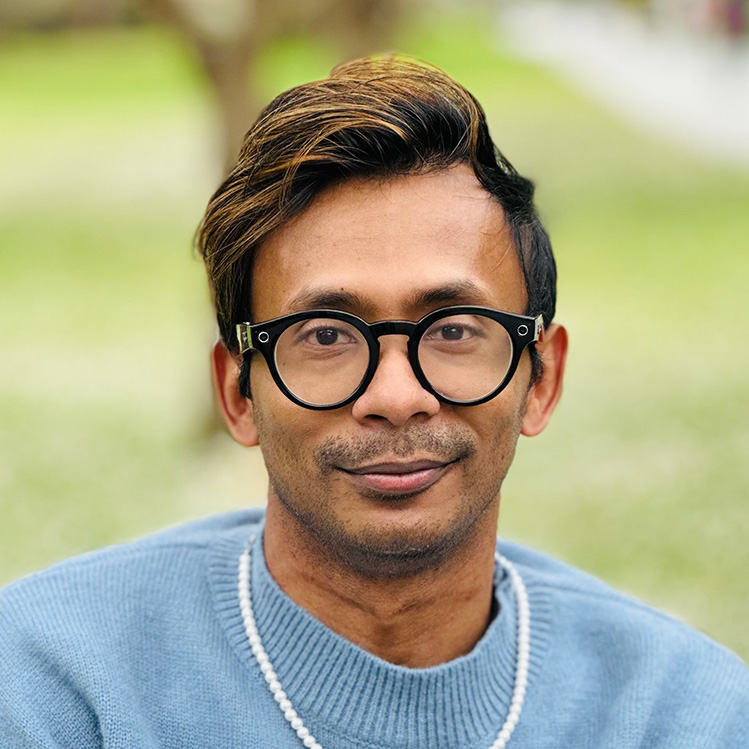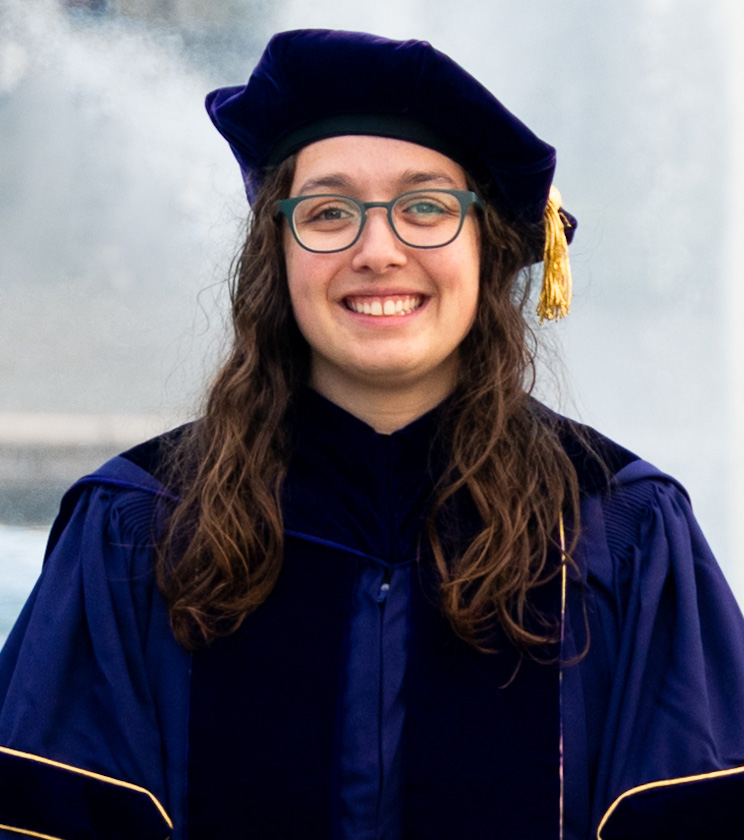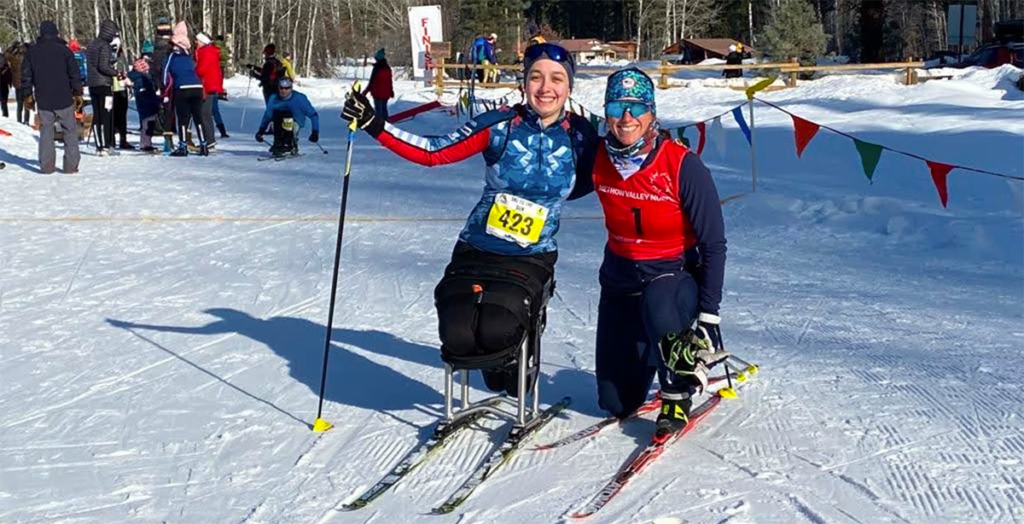Since its founding four years ago, CREATE has provided students with transformative ways of thinking about disability and about interdisciplinary research.
Ph.D. graduate Nicole Zaino and Ph.D. candidate Ather Sharif share their stories.
Ather Sharif
Ph.D. Candidate in the Allen School studying human-computer interaction, accessibility, visualization, and personalization
Before a car accident and intense physical therapy to recover the use of his hands, Ather Sharif built websites without considering whether people with disabilities could access them. “It was only after I became a part of the disability community that I started to realize how inequitable the world is for people with disabilities, and I wanted to do something to fix that using the skills I already had,” he said.
With his new perspective, Ather wanted to see technology built to adapt to the needs of its users; his research focuses broadly on the area of human-computer interaction and specifically on the intersection of accessibility, visualization, and personalization. Grateful to work in a hub of renowned researchers, Ather credits CREATE leaders, who include his advisor Jacob O. Wobbrock, as well as Richard Ladner, Jennifer Mankoff, and Anat Caspi, to name a few, “who are not only prominent allies for disabled people but are always willing to advise and guide students to be the best researchers they can be. I know this to be true because I would not have gotten to where I am today without them.”

“I cannot begin to express how incredible it is to have CREATE as part of our ecosystem,” says Ather. “It advances the state of accessible technologies for people with disabilities through cutting-edge research. Personally, as someone with a disability, it means the world to me. As a researcher, CREATE has funded almost all of my research work at UW.”
Ather was recently interviewed for the Allen School of Computer Science and Engineering about his work on accessible visualizations of data on websites.
Nicole Zaino
Ph.D. UW Mechanical Engineering, ’23, Biomechanics and assistive technology researcher
Dr. Nicole Zaino became interested in mechanical engineering when testing out new leg braces—a childhood stroke resulted in paralysis on one side of her body—and seeing other assistive technology on the clinic’s shelves. CREATE’s early-childhood mobility technology research projects supplied the perfect blend of personal interest and professional research goals.

Nicole described the immense benefits of having her education situated in CREATE’s interdisciplinary environment. “It has broadened my research and made me a better engineer,” she said, noting that she gained new vocabularies and interdisciplinary insights that allow her access to fields she otherwise wouldn’t have known about. She also emphasized the critical importance of end-user expertise in shaping research, which CREATE supports through its Community Partnerships program, and which informed her own Ph.D. research and her thesis dissertation, Walking and Rolling: Evaluation Technology to Support Multimodal Mobility for Individuals with Disabilities.
Nicole, who was advised by CREATE associate directors Katherine M. Steele and Heather Feldner, is currently applying her biomechanics and assistive technology perspective as a researcher—while training with the Crosscut Elite Team in Bozeman, Montana. As she trains as a sit skier in the hopes of qualifying for the Paralympics in para cross-country and para biathlon, she considers body positioning and how she needs to move her center of mass when she’s making a turn on the course.
